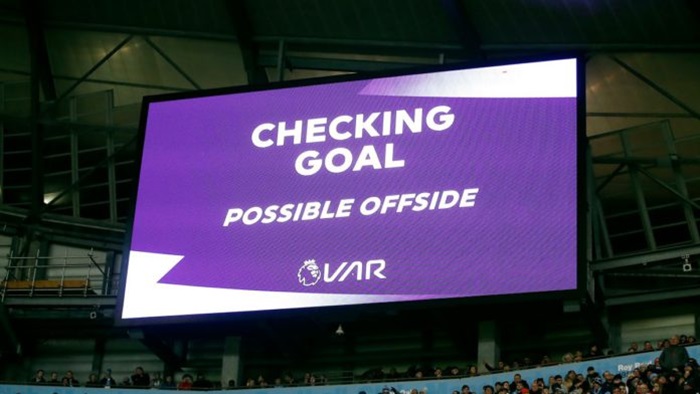There would be 100 more incorrect refereeing decisions made per season if clubs vote to scrap video assistant referees (VAR), the Premier League has claimed.
The league sent a briefing document to all 20 clubs before the annual general meeting on Thursday, 6 June, explaining the reasons why it feels VAR should remain.
Wolves formally submitted a resolution to the Premier League in May, which triggered a vote on the continued use of VAR.
Premier League clubs are unlikely to vote through this proposal, though in-game VAR announcements are set to be introduced.
The Premier League sent a ‘VAR Improvement Plan’ to clubs on Wednesday, written by chief football officer Tony Scholes.
The document, seen by BBC Sport, includes a section on the foreseen impact of removing VAR.
Among the consequences listed is that some “match-defining” decisions from on-field referees which were incorrect would not be overturned should VAR be absent.
It acknowledges that while scrapping VAR would result in fewer interruptions and delays to the game, “significantly more officiating errors would be made (around 100 per season), including highly contentious match-deciding incidents, potentially in critically important matches.”
The Premier League also states there were only five incorrect VAR interventions last season, compared to 105 correct calls. This is an improvement on 2022-23, when the league says there were 11 wrong VAR decisions to 105 which were right.
Among the other reasons cited to keep VAR is that the Premier League is “contractually committed to significant operating cost elements of VAR for the next three years”.
As the Premier League would be the only major European league to remove VAR if the vote passes, the league warns that it would be “potentially damaging” to its reputation, while English referees would not get major assignments for Uefa or Fifa tournaments “as regular experience operating both on-field with VAR and acting as VAR domestically are critical”.
‘Apathy, hostility and erosion of trust’
 IMAGE SOURCE: GETTY IMAGES
IMAGE SOURCE: GETTY IMAGES
Image caption: In a Football Supporters’ Association survey of 10,000 fans, just 26.8% were in favour of VAR
In the same briefing document, the Premier League accepts there are issues with VAR which it is attempting to sort, including the amount of time it takes for decisions to be made.
The document says the average delay to a game for a single VAR check lasted 64 seconds in the 2023‑24 season, up from 40 seconds in 2022-23.
One expected change is the use of in-game VAR announcements from referees, which Fifa introduced at a number of its competitions last year, including the 2023 Women’s World Cup.
These changes are likely to be welcomed by most Premier League clubs. BBC Sport understands Manchester City, Arsenal and Tottenham are among clubs who want to keep VAR, but are demanding that improvements are made.
Liverpool are also not supporting moves to get rid of VAR.
But Wolves remain staunchly in favour of scrapping VAR and sent out a briefing paper of their own on Wednesday.
The club highlight as issues the negative impact on match-going fans and their experience at games, as well as what they claim is a more negligible impact on correct decisions.
“Wolves argue that the use of VAR has led to increased disengagement among the Premier League’s match-attending fans due to its adverse effects on the match experience, resulting in apathy, hostility and erosion of trust in football’s authorities and officials,” they said in the paper.
They added: “Premier League data shows an increase in correct decisions from 82% pre-VAR to 96% with VAR, highlighting its effectiveness in reducing errors.
“If we put aside the argument on whether the data is credible and convincing, while overall accuracy might be increased to a debatable degree, the cost in terms of match enjoyment and fan engagement outweighs these benefits.
“The integrity of the game is compromised by lengthy interruptions and inconsistent application of VAR protocols.”
Source: Source

